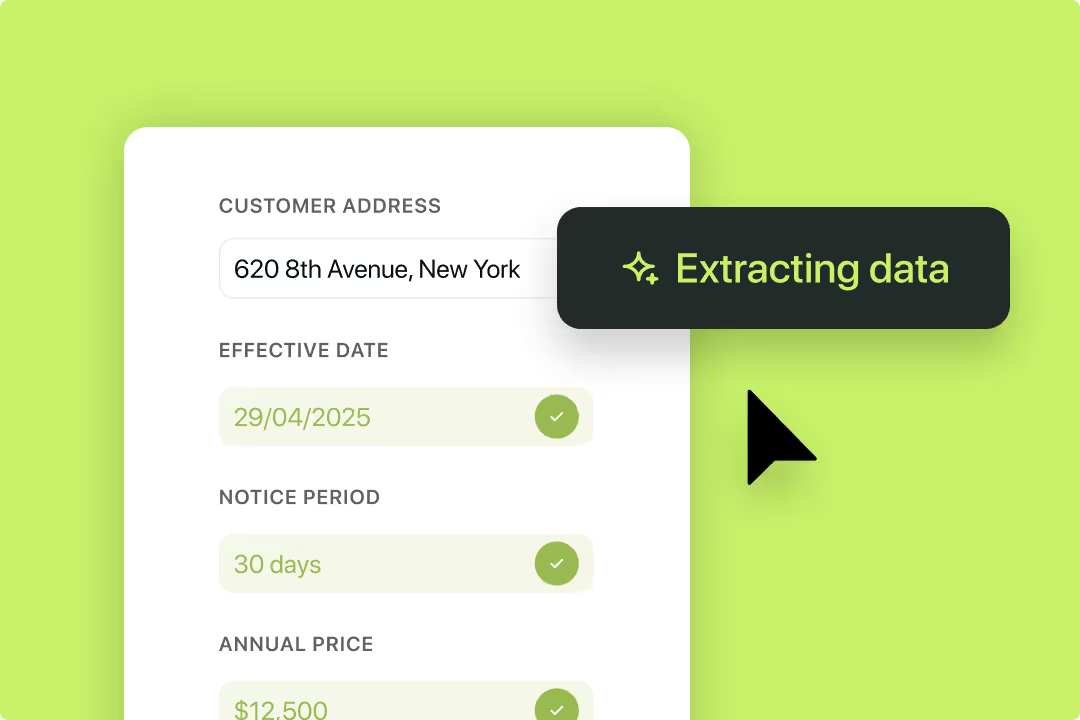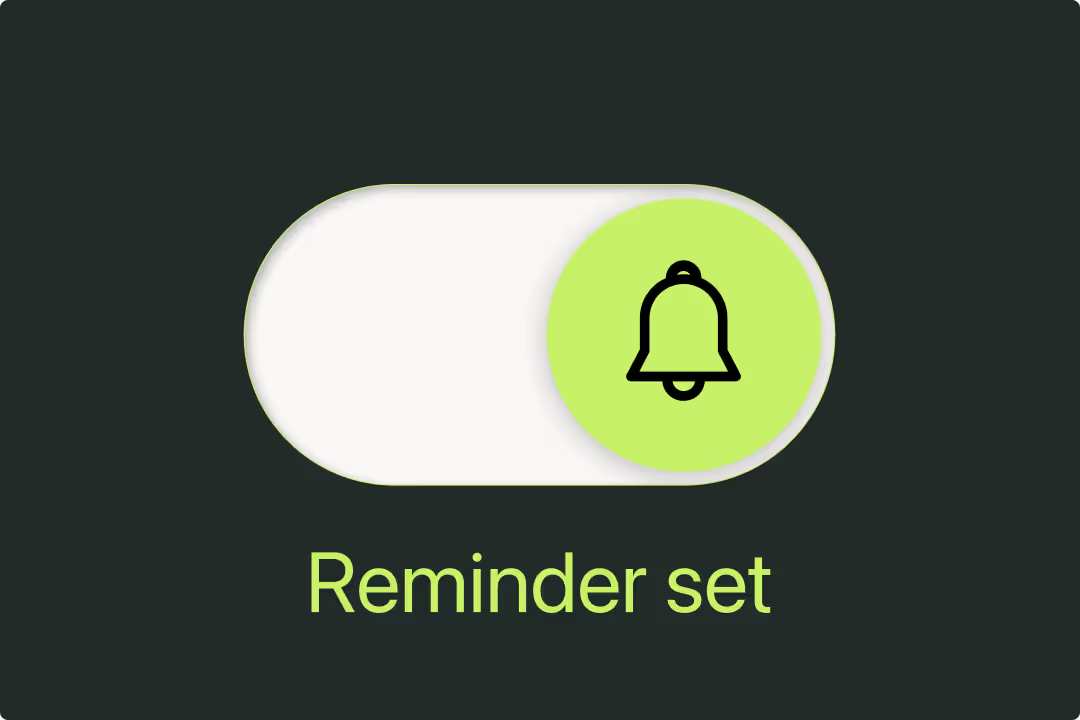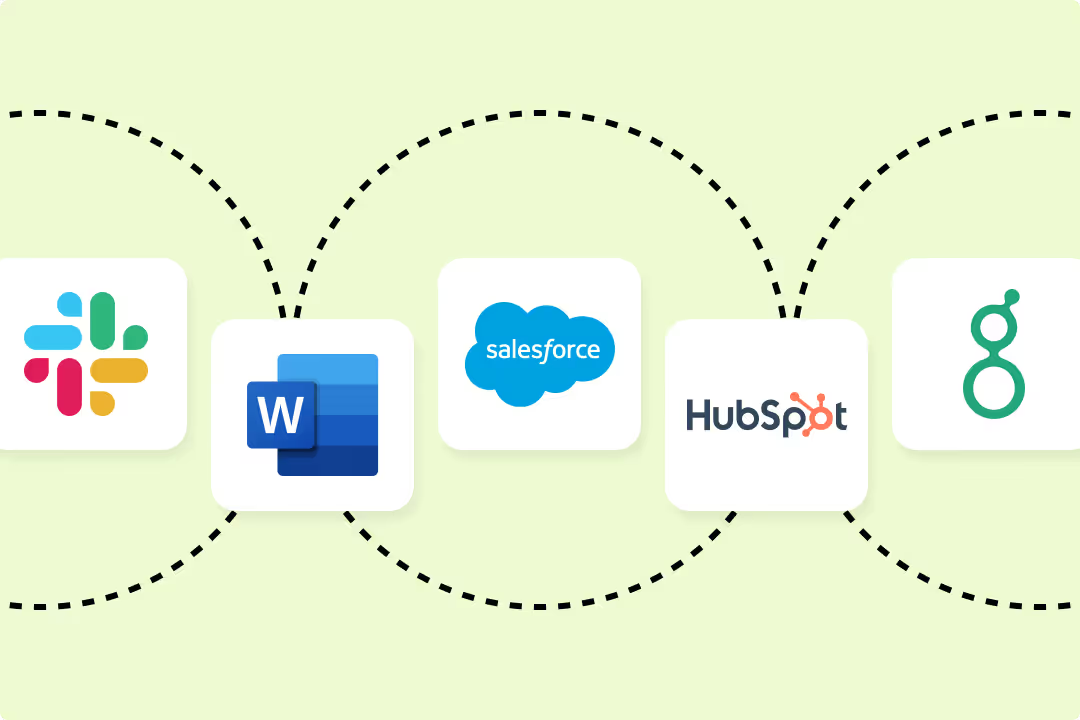Solutions
Customer Support
Resources
Getting a contract signed is one thing. Actually performing that contract is another. But businesses often spend most of their time trying to get contracts over the line, and not enough time thinking about how they’ll track and manage their obligations once they do.
In this definitive guide to contract performance, let’s run through what contract performance means, and what businesses like yours can do to stay on top of your contractual obligations in 2026.
Contract performance is the process of fulfilling the promises made in a contract. For parties to perform a contract successfully, they have to deliver the results they’ve promised in the agreement, and usually within a certain timeframe.
Failing to do this will result in a contract not being performed, and likely a breach of contract, too.
But contract performance isn’t just about what parties have agreed to do. It’s also about what they’ve agreed not to do.
For example, a commercial contract might include terms that prohibit certain information from being shared. Similarly, some employment contracts say that their employees can’t moonlight, which essentially means having a second job.
Understanding the stages of contract performance is critical for ensuring success. These are the key stages:
1. Preparation: Before performance begins, both parties need to ensure readiness. This includes understanding the obligations, allocating necessary resources, and establishing communication channels.
2. Execution: This is the active phase where obligations are fulfilled. Whether it’s delivering a product, rendering a service, or making a payment, execution requires close attention to detail and adherence to the agreed terms.
3. Monitoring and tracking: During performance, tracking progress is essential to ensure compliance. This can involve regular updates, milestone checks, and the use of technology to automate monitoring.
4. Review and resolution: Challenges often arise during performance. Having a plan to address and resolve issues—such as late deliveries or quality concerns—can make or break the contract’s success.
5. Closure and evaluation: Once all obligations are met, the performance phase ends. At this stage, reviewing outcomes and gathering insights can help inform future contracts.

Contract performance is important because it makes sure that all parties receive what they originally expected from a contract, and that the partnership has run smoothly.
By doing this, contract performance also releases the parties from the contract, by discharging it. This is called discharge of contract by performance, and it basically means that the contract has ended because all of the parties’ contractual obligations are complete.
Contract performance also matters because failing to fulfil your contractual duties can land you in legal trouble. Let’s explore the consequences of not performing your duties under a contract in a bit more detail now.
Not fulfilling your contractual obligations can have serious legal consequences.
Failing to perform your duties under a contract will often result in that contract being breached. This means that the party you’re in the contract with can take legal action against you for breaking the terms of the contract.
This legal action can quickly become expensive to fight, but it can also result in you having to fork out even more money in the form of damages. These damages will be used to compensate for your lack of performance, and any losses the other party has suffered as a result of it.
Contract performance is also important when it comes to maintaining relationships with the people you work for and with.
Even if your lack of performance doesn’t result in a contractual dispute, it can still discourage parties from wanting to do business with you again. After all, businesses often rely on the promises made in a contract. If you can’t stick to your part of the deal, they’ll need to look for someone more reliable that can.
Poor contract performance means customers probably won’t renew their contracts, and they’re even less likely to invest in additional products or services from you.
Before we explore what you can do to avoid these consequences and perform your contracts successfully, it’s also useful to understand that there are different types of contract performance. This is important because it determines how a contract will be discharged, and what the parties’ legal position will be when it is.

These three types of contract performance are:
Complete contract performance describes a situation where the parties have fulfilled all of their duties under a contract. When one party has performed the contract in full, the other party must do the same.
This is the best type of contract performance because it means that all expectations have been met, and no legal action is required. Instead, the contract ends because the obligations have been met in full already.
Substantial contract performance describes when the main contractual obligations have been performed, but a non-material obligation has not.
Non-material obligations are promises made as part of a contract, but they don’t form the substance of the contract. While it can be annoying if these promises aren’t met, it doesn’t necessarily undermine the purpose of the contract or result in a serious breach.
Instead, the contract can be discharged and any unmet promises can be compensated for.
The final type of contract performance is actually non-performance, also known as a breach of contract. We’ve explained this already, but a breach of contract occurs when parties have failed to fulfil their main contractual obligations.
To recap: we’ve covered what contract performance means, and the consequences of not performing your contractual obligations.
But for fast-growing businesses managing lots of contracts, the biggest challenge can be staying on top of your contractual obligations in the first place.
Fortunately, we have some top tips to make contract performance easier in 2026.
It’s hard to fulfil your contractual obligations if you don’t know what they are or where to find them.
This is a common problem for businesses that have their executed contracts scattered across local drives and filing cabinets. Different versions are shared in different places, each with different access controls. This makes it almost impossible to track contracts and their deadlines.
Instead, businesses should opt for a secure contract storage solution that helps them not just store contracts safely, but also find them easily.
Juro’s all-in-one contract automation software is a great example of this, as Juro’s contract repository allows teams to not only centralize where they store their contracts but also search through them in seconds using OCR technology.

Did you know? 9 in 10 contract professionals feel like finding specific contracts is a challenge, with many spending up to two hours looking for specific terms and language within an agreement.
It’s also important to capture the data in your contracts accurately to make sure that you’re performing your contracts correctly. To do this, you’ll want to set up a system that allows you to quickly review important details like:

Lots of businesses manually extract this information from contracts and add it to a contract management spreadsheet of some sort. This works, but it can be time-consuming and there’s no guarantee that the data recorded is completely accurate.
It’s often faster, and more reliable, to automate this process. This is possible with most contract management systems as they often pull the data captured in smartfields into a contract dashboard automatically.
Again, Juro is a great example of this. Not only can Juro users customize their contract templates to capture certain data, but they can also create customizable contract dashboards to view this data at scale.
Contract reminders are another great way to ensure contract performance.
Certain contract reminder solutions, including Juro, will allow you to customize who you want to notify and how far in advance you’d like them to receive the notification. Juro users can create contract reminders for any dates within the contract, meaning there’s no risk of your team missing upcoming contract deadlines.

Did you know? 40 per cent of the organizations surveyed admit that it's not clear who is in charge of contract-related tasks.
Another great way to ensure contract performance is to sync your contracts with your other business tools. That way, the data stored in contracts can be added to other business systems, providing company-wide visibility into contracts and their obligations - if appropriate.
Juro connects with 5000+ tools, allowing legal and business teams to manage their contracts in Salesforce, Hubspot, Greenhouse, Quickbooks, Pipedrive, and more.

Adopting a contract management solution like Juro can provide visibility into your contractual obligations and make managing your contracts simple.
To find out more about how Juro can improve the way you manage contract performance, fill in the form below to receive a personalized demo.

Lorem ipsum dolor sit amet, consectetur adipiscing elit. Suspendisse varius enim in eros elementum tristique. Duis cursus, mi quis viverra ornare, eros dolor interdum nulla, ut commodo diam libero vitae erat. Aenean faucibus nibh et justo cursus id rutrum lorem imperdiet. Nunc ut sem vitae risus tristique posuere.

